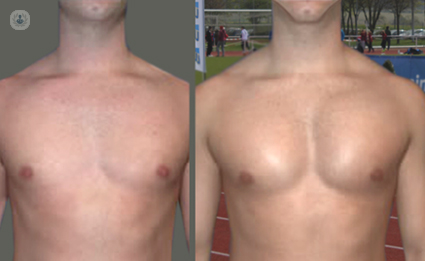Pectoral implants are a type of cosmetic surgery procedure designed to enhance the appearance of the chest muscles, specifically the pectoral muscles. The procedure involves the insertion of silicone implants into the chest area to create the desired size and shape of the pectoral muscles.
Here are some key points to know about pectoral implants:
- 1. Purpose: Pectoral implants are primarily performed for aesthetic reasons. They are intended to provide individuals, typically men, with a more defined and muscular chest appearance. The implants can help to achieve the desired pectoral muscle size and contour for those who are unable to achieve the desired results through exercise and strength training alone.
- 2. Implant Material: Pectoral implants are typically made of solid silicone, which is a biocompatible material commonly used in various types of implants. Silicone implants are chosen for their durability, flexibility, and ability to mimic the texture and feel of natural muscle tissue.
- 3. Surgical Procedure: Pectoral implant surgery is performed under general anesthesia. The surgeon makes an incision in the armpit or along the lower border of the pectoral muscle. The silicone implant is then inserted into a pocket created either above or beneath the chest muscle, depending on the desired outcome and the individual's anatomy. The incisions are then closed with sutures or surgical tape.
- 4. Recovery and Results: Following the surgery, patients typically experience some pain, swelling, and bruising in the chest area. It is important to follow the surgeon's post-operative instructions, which may include wearing a compression garment, taking prescribed medications, and avoiding strenuous activities for a few weeks. The final results of pectoral implant surgery may take several weeks to months to fully manifest as the swelling subsides and the muscles heal.
- 5. Risks and Considerations: As with any surgical procedure, pectoral implant surgery carries potential risks and complications. These can include infection, bleeding, adverse reactions to anesthesia, implant malposition, scarring, asymmetry, and dissatisfaction with the cosmetic outcome. It is crucial to choose a qualified and experienced plastic surgeon who specializes in this procedure to minimize risks and ensure the best possible results.
Before considering pectoral implants or any other cosmetic surgery, it is important to have a thorough consultation with a qualified plastic surgeon. They can evaluate your individual situation, discuss your goals, and provide you with the necessary information to make an informed decision about whether this procedure is suitable for you.

